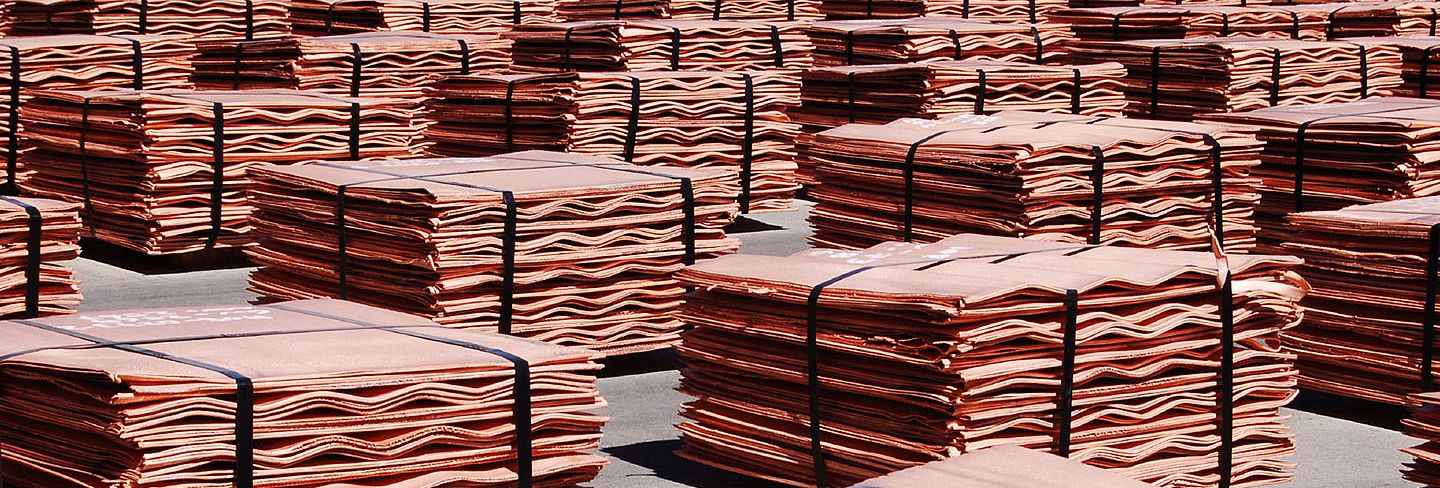Raise Your Craftsmanship with High-Performance Copper Products for Artisans
Raise Your Craftsmanship with High-Performance Copper Products for Artisans
Blog Article
How Copper Products Contribute to Sustainable Practices in Different Industries
Copper products are increasingly acknowledged for their substantial contributions to sustainable methods across several sectors, driven by their fundamental residential or commercial properties such as longevity, recyclability, and efficiency. In renewable resource systems, for example, copper boosts the performance of solar and wind modern technologies, while its application in building reduces waste through long life. The product's antimicrobial features use appealing benefits in health care settings. As industries seek to embrace even more sustainable methods, the duty of copper could verify critical in achieving ecological goals. What effects might this have for future innovations in sustainability?
Copper in Renewable Energy
Copper plays a critical role in the advancement of renewable resource modern technologies, working as a crucial conductor in various applications. Its extraordinary electrical conductivity and resistance to corrosion make it a suitable material for electrical wiring, which is vital in photovoltaic panels, wind turbines, and energy storage space systems. In solar photovoltaic or pv systems, copper is utilized in the affiliations and wiring, enabling effective energy conversion from sunshine to electrical energy.
In wind energy, copper is indispensable to the generators and transformers that convert kinetic energy into electrical power, making certain optimal performance and integrity. The demand for electrical cars (EVs) is enhancing, with copper being a key component in batteries, electric motors, and billing infrastructure. The shift to EVs considerably boosts the need for copper, as these vehicles commonly use 4 times more copper than traditional interior combustion engine cars.
As the world looks for to reduce climate change and transition to sustainable power resources, copper's duty comes to be significantly vital. The product not just improves the effectiveness and toughness of sustainable power systems however additionally supports the wider objective of lowering greenhouse gas exhausts and promoting a lasting future.
Eco-Friendly Building And Construction Materials
In the last few years, there has been a significant change towards the adoption of environmentally friendly building and construction products in reaction to expanding ecological issues. This adjustment is encouraged by the need for lasting options that lessen eco-friendly impacts while preserving structural honesty and aesthetic charm.
Copper, understood for its resilience and recyclability, has actually arised as a principal in this sector. It can be used in roof, pipes, and electric systems, adding to energy efficiency and minimizing waste. Copper's longevity implies fewer replacements in time, further enhancing its sustainability account.
In addition, products such as bamboo, reclaimed wood, and reused steel are acquiring popularity. These alternatives not just use reduced environmental influence but likewise promote resource conservation. As developing codes increasingly stress sustainability, contractors and designers are incorporating these products into their tasks, promoting technology in style.
The boosting adoption of eco-friendly construction products mirrors a more comprehensive dedication to sustainability in the developed setting. By prioritizing these materials, the construction sector can dramatically reduce its carbon impact, align with regulatory criteria, and support a healthier community for future generations. This trend marks a crucial step towards a much more lasting future in building.
Copper's Role in Medical care
Current studies have actually highlighted the substantial role of copper in health care settings, particularly as a result of its antimicrobial residential properties. Copper surfaces have actually been shown to decrease the presence of pathogens, including bacteria and viruses, by up to 99.9% within a brief duration. This remarkable efficiency makes copper a vital product for high-touch surface areas in hospitals, such as doorknobs, bed rails, and IV posts, thus adding to improved infection control actions.
Along with its direct antimicrobial results, copper likewise plays a duty in the broader context of healthcare facility sustainability (Copper Products). By integrating copper into clinical tools and home furnishings, medical care facilities can minimize the occurrence of healthcare-associated infections (HAIs), which not only enhances individual results yet also lowers the prices related to prolonged health center remains and added therapies
Furthermore, copper's durability and recyclability line up with sustainable techniques, enabling accountable source administration. As medical care systems progressively focus on both patient security and environmental stewardship, the integration of copper products is coming to be extra widespread. This double advantage highlights copper's important payment to a much healthier, safer, and extra lasting health care environment.
Sustainability in Transportation

Additionally, copper's toughness and corrosion resistance add to the long life of transport framework (Copper Products). In rail systems, for example, copper components improve the dependability and performance of signaling and power systems, crucial for decreasing hold-ups and energy intake. Additionally, copper's function in sustainable energy systems, such as solar and wind, sustains lasting transport solutions by supplying clean energy for electrical transit choices
Investments in copper modern technology not just foster sustainability yet likewise promote economic development and job creation in environment-friendly markets. As sectors strive to satisfy strict ecological laws, the application of copper items in transportation becomes a pivotal technique in attaining sustainability objectives and advertising a cleaner, more reliable future.
Copper and Round Economic Situation
As the why not try here globe significantly accepts sustainability, the role of copper in the circular economy ends up being ever a lot more considerable. Copper's intrinsic residential properties-- such as its conductivity, longevity, and recyclability-- position it as a key product in a resource-efficient economic situation. The circular economy aims to minimize waste and take full advantage of source usage through recycling and reusing products, and copper useful link excels in this regard.
The metal can be reused indefinitely without loss of high quality, making it an ideal candidate for lasting techniques across various fields, including building and construction, electronics, and renewable resource. By recuperating and recycling copper from end-of-life products, markets can dramatically lower the requirement for virgin products, therefore decreasing environmental influences related to mining and handling.
Furthermore, the combination of copper into circular economic climate frameworks not only saves sources but also cultivates innovation. Businesses that prioritize copper reusing add to a more lasting supply chain, boosting their competitiveness while aligning with governing demands and customer choices for environmentally responsible products.
Conclusion
In conclusion, copper products considerably contribute to lasting methods throughout several sectors. Their essential duty in improving eco-friendly energy technologies, advertising green building products, sustaining infection control in health care, facilitating lasting transportation, and symbolizing the concepts of a round economic situation emphasizes the convenience and significance of copper. By integrating copper into different applications, sectors can accomplish higher efficiency, decrease environmental effect, my sources and straighten with global sustainability goals, inevitably cultivating an extra lasting future.

Copper's exceptional conductivity makes it a preferred product in electrical lorry (EV) systems, improving energy effectiveness and performance. In addition, copper's duty in sustainable power systems, such as solar and wind, supports lasting transport options by offering tidy energy for electric transit alternatives.
Their crucial function in boosting sustainable energy innovations, promoting eco-friendly building materials, supporting infection control in health care, helping with lasting transportation, and personifying the concepts of a round economy highlights the convenience and relevance of copper.
Report this page